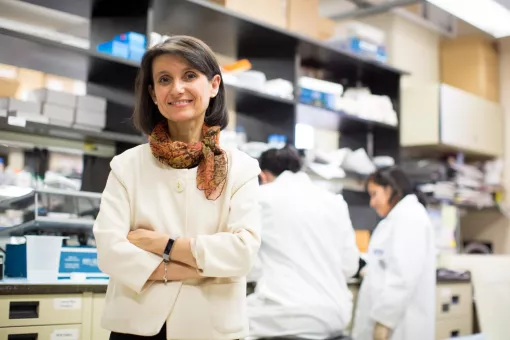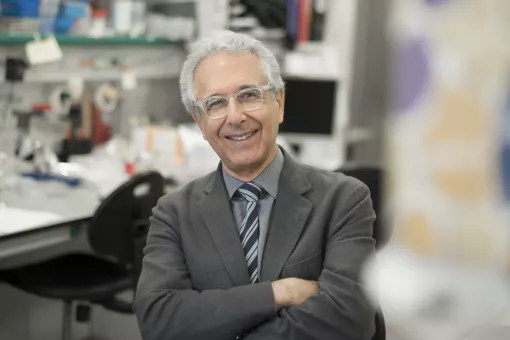Images
The collaborative project will focus on identifying the cellular defects that lead to Cohen Syndrome.
Awarded €400,000 of funding, the project will last for 3 years.
The Microtubule Organization lab at IRB Barcelona will be leading the project.
Cohen Syndrome is a rare genetic disorder characterized by multiple health problems. Affected children may suffer from developmental delay, intellectual disability, weak muscle tone, reduction in the number of certain blood cells, which increases the risk of infections, and loss of vision, which becomes worse with age and can lead to blindness.
Yesterday, the Fundació La Marató de TV3 announced the 41 research projects to receive funding from the 2019 La Marató telethon devoted to Rare Diseases. In total, 226 projects have been appraised on the basis of their excellence, methodology and relevance in a peer-review process managed by the Quality and Health Assessment Agency of Catalonia.
One of the funded projects was proposed by Jens Lüders, head of IRB Barcelona’s Microtubule Organization lab, and it involves two additional partners, Dr. Dunja Lukovic (Centro de Investigación Príncipe Felipe, Valencia, Spain) and Prof. Dr. Melanie Philipp (University of Tübingen, Germany). Together, they will use cells donated by patients, and also organoids and zebrafish to elucidate the underlying mechanisms that lead to the health problems in Cohen Syndrome.
The Golgi apparatus and microtubules
Cohen Syndrome patients carry mutations in the VPS13B gene. However, the exact function of VPS13B is unknown and no treatment is available. This gene plays a role in the structural integrity of a cellular organelle, the Golgi apparatus. This organelle helps in the assembly and organisation of the microtubule cytoskeleton. In turn, the microtubule cytoskeleton is involved in Golgi-mediated intracellular transport of lipids and proteins. Researchers at the Microtubule Organization lab hypothesise that this crosstalk between the Golgi apparatus and the microtubule cytoskeleton may be defective in Cohen Syndrome patients.
“Our search for an explanation of how mutations in the VPS13B gene cause health problems in Cohen Syndrome patients will provide greater knowledge of this rare disease—knowledge that is crucial to find future treatments,” Lüders explains.
About IRB Barcelona
The Institute for Research in Biomedicine (IRB Barcelona) pursues a society free of disease. To this end, it conducts multidisciplinary research of excellence to cure cancer and other diseases linked to ageing. It establishes technology transfer agreements with the pharmaceutical industry and major hospitals to bring research results closer to society, and organises a range of science outreach activities to engage the public in an open dialogue. IRB Barcelona is an international centre that hosts 400 researchers and more than 30 nationalities. Recognised as a Severo Ochoa Centre of Excellence since 2011, IRB Barcelona is a CERCA centre and member of the Barcelona Institute of Science and Technology (BIST).






